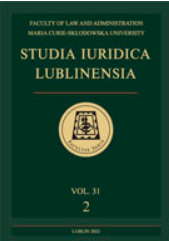The regulation of public procurement in the European Union focuses on the internal market and its function in accordance with the fundamental freedoms. It aims at installing a behaviour for the public sector which is similar dynamics to the function
The regulation of public procurement in the European Union focuses on the internal market and its function in accordance with the fundamental freedoms. It aims at installing a behaviour for the public sector which is similar dynamics to the function
Author(s): Christopher H. BovisSubject(s): Economy, Supranational / Global Economy, Public Finances, Socio-Economic Research
Published by: Wydawnictwo Naukowe Uniwersytetu Marii Curie-Sklodowskiej
Keywords: public procurement; flexibility; discretion; harmonisation; internal market
Summary/Abstract: The regulation of public procurement in the European Union focuses on the internal market and its function in accordance with the fundamental freedoms. It aims at installing a behaviour for the public sector which is similar dynamics to the function of private markets. However, the regulation of public procurement reflects a characteristic of the relevant markets which is sui generis and has as main feature the pursuit public interest. These markets are referred to as public markets, which are distinct from private markets in their driver. Public markets exist to deliver public interest, whereas private markets exist to allow operators pursue profit. The regulation of public procurement rests on harmonisation which as a legal and policy process has been selected by European institutions to convey such regulation through directives. The latter are legal instruments which provide frameworks for implementation of the acquis communautaire but allow the required flexibility through discretion which is afforded to Member States in relation to the forms and methods of their implementation.
Journal: Studia Iuridica Lublinensia
- Issue Year: 31/2022
- Issue No: 4
- Page Range: 9-27
- Page Count: 19
- Language: English

